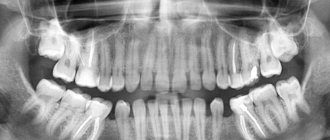Reasons why anesthesia is required
According to statistics, about 2-3% of women during pregnancy need surgery with the use of anesthetics. Most often this concerns dental or surgical problems.
I can definitely say that anesthesia during pregnancy is justified in cases where there is a real threat to the life of the expectant mother and emergency action cannot be avoided. However, if the situation allows you to perform the necessary manipulations as planned, the operation will definitely be postponed until after childbirth.
Without delay, despite pregnancy, we take the patient for surgery if we find:
- appendicitis (its main threat is the development of peritonitis with a fatal outcome);
- other tumors of different etiologies;
- cysts;
- extensive life-threatening injuries;
- isthmic-cervical insufficiency - here treatment must be carried out just to maintain pregnancy.
We also recommend reading: Tracheal extubation: indications, technique
In this video you will see footage of a real operation performed on a pregnant woman.
In my practice, there were 2 patients with appendicitis during pregnancy who were successfully operated on under epidural anesthesia. They gave birth to their healthy children on time.
What danger do anesthetics pose to the fetus and the expectant mother?
Anesthesia, like any other medications, can negatively affect the development of pregnancy at any stage. This is due to several main factors:
- possible teratogenicity (drugs can cause dysfunction of the fetus and severe deformities);
- possible asphyxia of the fetus and its death as a result of hypoxia in the mother when using an anesthetic
- high probability of increased uterine tone, which can lead to spontaneous miscarriage or premature birth
The most dangerous is the use of anesthesia between 2 and 8 weeks of pregnancy, when all the organs and systems of the baby are formed and formed. Another dangerous period is the third trimester of pregnancy: at this time the physiological load on the mother’s body is maximum, and there is also a high probability of developing premature labor. Therefore, doctors try, whenever possible, to carry out surgical interventions in the second trimester - between 14 and 28 weeks, when all organs and systems of the fetus are formed, and the uterus minimally reacts to external influences.
In general, according to statistics, surgical interventions using anesthesia at any stage of pregnancy are not associated with huge risks:
- maternal mortality during anesthesia does not exceed that of non-pregnant women;
- the incidence of congenital anomalies during a single anesthesia is comparable to the development of pathologies in pregnant women who have not been exposed to such effects;
- the probability of fetal death is on average 6% - when performing operations in the second and third trimesters, 11% - when performing interventions for up to 8 weeks;
- The risk of preterm birth due to anesthesia is no more than 8%.
Specialists who perform surgery choose the optimal pain management tactics depending on the complexity of the operation and individual factors. Preservation of pregnancy is their main task.
Possible consequences after anesthesia
Alas, we are not Gods, so we cannot predict how anesthesia will affect pregnancy and the further development of the baby. Numerous studies on this topic say this:
- The probability of miscarriage or frozen pregnancy during surgery under anesthesia is no more than 6%. It is especially dangerous in the early stages, for the first time 8 weeks, during the formation of the main organs.
- The likelihood of miscarriage due to surgery performed under anesthesia. Amounts to 8%.
By and large, medications used as anesthesia are fairly safe. Theoretically, anesthesia can be carried out in the early stages of pregnancy, but you need to choose drugs and pain management techniques with particular seriousness and full awareness of your actions.
We also recommend reading: Table No. 2
We must remember that there is always a risk. The highest risk of using anesthesia during pregnancy is in the first trimester, when the formation of internal organs occurs. The third trimester is also dangerous, because... surgical interventions can cause premature birth.
It is precisely because of the high risks of using anesthesia during pregnancy that doctors strongly recommend a thorough examination before planning a pregnancy. See a dentist or surgeon; if you know about any chronic diseases, conduct additional examinations, this will protect yourself and your unborn baby.
Anesthesia during pregnancy
It must be clearly understood that any operation during pregnancy is performed only when the patient’s condition requires emergency medical care and threatens her life. In another case, all planned surgical measures are carried out after delivery.
But if you still have to undergo surgery, then local anesthesia during pregnancy is preferable, but this does not mean that it is absolutely harmless. But if used correctly, the chances of complications will be minimal.
The use of anesthetics in the first and second trimesters of pregnancy poses a particular danger to the fetus, since it is during this period that the formation of the child’s organs occurs, and the drugs used for pain relief penetrate well through the placenta and can cause inhibition of cell development. In addition, anesthetics disrupt placental and uterine blood flow, which affects the child’s nutrition.
At the same time, there is a certain danger for women. When using anesthetics, she experiences a surge of adrenaline, which can provoke termination of pregnancy. In addition, vomiting and vomit entering the lungs is possible.
Because of this wide range of possible complications, pregnant women are operated on under general anesthesia for vital signs during the first two trimesters.
Minor surgical operations can be performed under local anesthesia (for example, dental procedures), when the anesthetic is injected directly into the area of the intended intervention. But in this case, it is important that the woman warns about her pregnancy and the doctor uses drugs that do not contain adrenaline, because this can cause a miscarriage.
Regarding the third trimester, the risk to the baby’s life when using anesthesia during this period is even greater, since significant physiological changes occur in the body (displacement of abdominal organs, compression of blood vessels, etc.), therefore, in case of urgent need for extensive surgical intervention, The question is whether to first perform a caesarean section under local anesthesia, and only then carry out the necessary actions under general anesthesia. But, of course, everything is determined on an individual basis. When many factors are taken into account:
- gestational age and fetal development level;
- degree of risk;
- pregnant woman's condition;
- clinical indications;
- wishes of the woman or her relatives (if the patient is unconscious).
A few words about anesthesia during pregnancy
We can definitely say that local conduction anesthesia, made with drugs that include adrenaline, has a negative effect on early pregnancy. It causes disruption of blood flow to the placenta. In dentistry, one of the most popular drugs is Ultracaine. However, it is strictly forbidden to use it, as it contains adrenaline.
How can you reduce the risks of anesthesia?
For pregnant women, some emergency operations can be performed under regional, spinal or epidural anesthesia. However, the question of choosing a method of pain relief should be decided together with a doctor, since only he can take into account all the indications and contraindications.
One way to minimize the effect of anesthetics on the unborn child is to use multicomponent anesthesia, in which drugs from different groups are used. This allows the concentration of each of these drugs to be reduced, which reduces their toxic effect.
Caesarean section, which is the most common operation in pregnant women, is currently 80% preferred by doctors to be performed under spinal anesthesia, which completely prevents the entry of anesthesia drugs into the child’s body.
To reduce all negative effects, doctors try to use drugs that do not pass through the uteroplacental barrier. It becomes easier to do this every year, as new, modern anesthetics, including inhalational ones, appear.
(Ratings: 1 , average: 5.00 )
How does pain relief affect the body of a pregnant woman?
Basically, the harm from local anesthesia during pregnancy comes down to the possible manifestation of allergies.
In dentistry, modern local anesthetics are used, which are practically not absorbed into the blood and do not cause systemic complications.
Those. if a woman is not allergic to a specific drug, then pain relief affects her in the same way as before pregnancy - it numbs the jaw and does not cause unwanted effects.
You should be wary of hypersensitivity. Pregnancy is accompanied by hormonal changes, which can cause allergies in cases where they were not previously observed.
Visits to the dentist in every trimester of pregnancy
Necessary. Immunity decreases during pregnancy. And this is not surprising: a woman bears within herself a new organism, different from herself. What changes from the dentist's point of view? Firstly, the risk of bone tissue destruction increases. Secondly, changes occur in the functioning of the glands that produce saliva. The rate of saliva secretion decreases, its viscosity increases, and the pH shifts to the acidic side.
As a rule, during pregnancy a deficiency of calcium and magnesium occurs - this reduces the mineralizing ability of saliva. It ceases to perform a very important function: to wash teeth, remove food debris, and supply tooth enamel with minerals. The risks of gum disease and tooth decay increase. Therefore, a pregnant woman should be responsible for brushing her teeth and regularly visit the dentist for professional cleaning, as well as prevention and treatment at the earliest stages.
Highly undesirable. Avoid any dental intervention (except professional hygiene) in the first and third trimesters: in the first, all organs and systems of the child are formed, in the third, the excitability of the uterus increases, so any irritants can lead to the risk of miscarriage or premature birth.
Can. The second trimester (this is approximately 14-20 weeks), when all the baby’s systems are smoothly developing, is the safest for dental treatment.
Is it worth enduring toothache during pregnancy?
In no case! Many women still refuse any pain relief and endure pain. “It’s more harmless for the baby,” they say. And it’s good if you still go to see a doctor - many simply suffer at home, use the most unimaginable home remedies, but never go to the dentist! The Internet is full of messages from women who consider themselves almost heroines because they endured severe pain, not wanting to harm their unborn child.
But in fact, it only gets worse: pain, especially severe and prolonged, disrupts the functions of internal organs and metabolism. And that's not all! Pain has another aspect - psychological. A woman may be afraid of pain, worry about it, lose her temper, and commit rash acts.
By the way, why is toothache so bad? The fact is that pain receptors are located in almost all tissues of the body (except for the nervous tissue of the brain and spinal cord). And the greatest density of nerve fiber endings that record pain is located precisely at the border of dentin and tooth enamel.
Features of epidural anesthesia
First, let's talk about epidural anesthesia. In the lumbar area there is the epidural space, where the spinal roots emerge. They transmit nerve impulses from the pelvic organs. Anesthetics are injected into this area so that the pregnant woman does not feel pain when contractions occur. However, the woman remains fully conscious and can even move. She does not feel only the area that is below the belt.
Regarding this type of painkillers, expert opinions only agree that they will not cause any harm to the baby, since they do not penetrate the placenta and are not absorbed into the child’s blood.
As for its influence on labor, the opinions of doctors are completely different. Some of them believe that it does not affect the birth process in any way, while others say that in the first period, thanks to this anesthesia, contractions intensify, and then the attempts become less noticeable.
Why is epidural anesthesia needed during pregnancy? It is prescribed by doctors in the following cases:
- Premature pregnancy.
- High blood pressure.
- Discoordination of labor.
- Long and difficult labor.
- The need for a caesarean section.
Now let’s summarize briefly and weigh the pros and cons.










